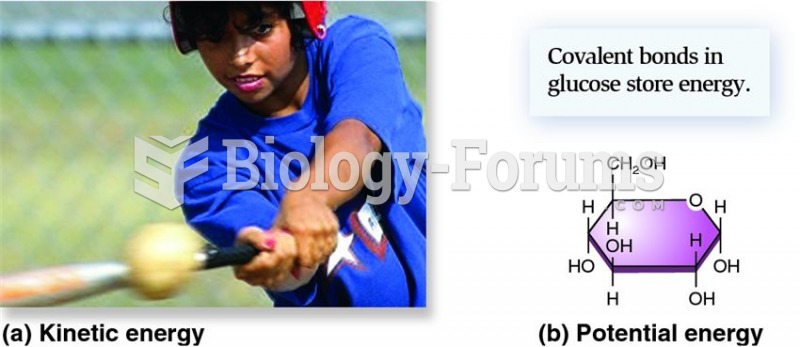|
|
|
The Food and Drug Administration has approved Risperdal, an adult antipsychotic drug, for the symptomatic treatment of irritability in children and adolescents with autism. The approval is the first for the use of a drug to treat behaviors associated with autism in children. These behaviors are included under the general heading of irritability and include aggression, deliberate self-injury, and temper tantrums.
According to the National Institute of Environmental Health Sciences, lung disease is the third leading killer in the United States, responsible for one in seven deaths. It is the leading cause of death among infants under the age of one year.
There are 60,000 miles of blood vessels in every adult human.
There are approximately 3 million unintended pregnancies in the United States each year.
Urine turns bright yellow if larger than normal amounts of certain substances are consumed; one of these substances is asparagus.







